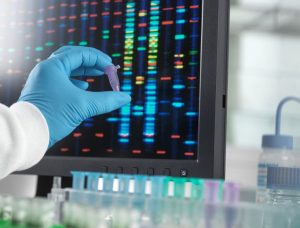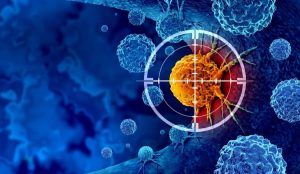
Recognizing Cancer Misinformation: Expert Insights from 2 RCCA Oncologists
“Consider the source.” It’s good advice for dealing with the sting of criticism or the allure of gossip, but two oncologists say it’s even better
HIPAA Alert: Potential Data Breach Learn More
Questions on Oncology, Hematology and/or Infusion Clinical Services due to COVID-19 Crisis – CALL 833-698-1623
Important Information for Our Patients Regarding the Coronavirus.
RCCA Providing Area Cancer Patients with Access to Care During Coronavirus Outbreak
RCCA Offering Patients Virtual Visits During Coronavirus Pandemic
The immune system’s T cells are the body’s dominant defense against disease or infection. They recognize the proteins of healthy, normal cells and leave those alone, while they attack cells with proteins that indicate infections. When cancer cells develop, however, their protein tricks the T cells into thinking they’re normal and healthy – not cancerous – and so the T cells fail to attack and eliminate the cancerous cells.
That’s where checkpoint inhibitors come in. These agents induce T cells to target cancer cells and fight them off. Here’s an explanation of checkpoint inhibitors and what to expect from them as a part of your cancer treatment.
Also known as immune checkpoint inhibitors, this type of immunotherapy is considered as a type of targeted treatment or monoclonal antibody. These medications help the immune system identify cancer cells by obstructing the proteins that make cancer cells seem normal and healthy.
Checkpoint inhibitors are often referred to as immune checkpoint blockades, as the drugs block the proteins, or checkpoints, that prevent T cells from attacking the cancer cells. They are also called PD-L1 inhibitors, PD-1 inhibitors or CTLA-4 inhibitors.

The receptors of cancer cells tell T cells that they are not cancerous and to leave them alone. That’s where checkpoint inhibitors play a crucial role in supporting the immune system’s natural defense against infectious cells, such as cancer cells. These drugs, which typically consist of cell-destroying antibodies, allow the T cells to identify cancer cells and attack them.
Once the T cells begin to attack cancer cells with the assistance of checkpoint inhibitors, the immune system also sets off its own response to help prevent the T cells from also killing off the body’s normal, healthy cells and tissues. It all adds up to allowing the T cells to do their natural duties of killing off cancer cells while keeping the healthy ones intact.

Checkpoint inhibitors have been highly successful against several types of cancer, while clinical trials are researching and testing their effectiveness on others. Currently, checkpoint inhibitors are used to treat lung cancer, melanoma skin cancer and Hodgkin lymphoma.
Checkpoint inhibitors are administered intravenously, with each treatment lasting anywhere from 30 to 60 minutes. How often you need to receive these medications depends on your type of cancer and its stage, as well as other previously attempted or ongoing cancer treatments.
Compared with other chemotherapy drugs, checkpoint inhibitors typically are easier to tolerate and are less toxic on the body. In addition, checkpoint inhibitors do not require a port to be surgically implanted to serve as the injection site for these intravenous medications, which is required for many chemotherapy drugs. Plus, use of checkpoint inhibitors does not require pre-treatment preparations, such as fasting or drinking a certain amount of water.
The future of checkpoint inhibitors is promising, given the success this type of immunotherapy has seen so far. Clinical trials of checkpoint inhibitors for the treatment of sarcoma, certain types of lymphoma and other cancers also are ongoing.
We offer our patients the opportunity to take advantage of the benefits of checkpoint inhibitors as part of their cancer treatment. We offer only the latest advancements in medicine, so checkpoint inhibitors align with our philosophy and can assist you on your road to recovery. For more information, contact Regional Cancer Care Associates today.

“Consider the source.” It’s good advice for dealing with the sting of criticism or the allure of gossip, but two oncologists say it’s even better

Biomarker testing is the evaluation of samples of a patient’s tumor, blood, or both to identify the genetic mutations responsible for the development of cancer,

Medical research has made tremendous strides in improving how oncologists understand and treat cancer. One of the most exciting developments is the use of radiopharmaceuticals.

Regional Cancer Care Associates is one of fewer than 200 medical practices in the country selected to participate in the Oncology Care Model (OCM); a recent Medicare initiative aimed at improving care coordination and access to and quality of care for Medicare beneficiaries undergoing chemotherapy treatment.